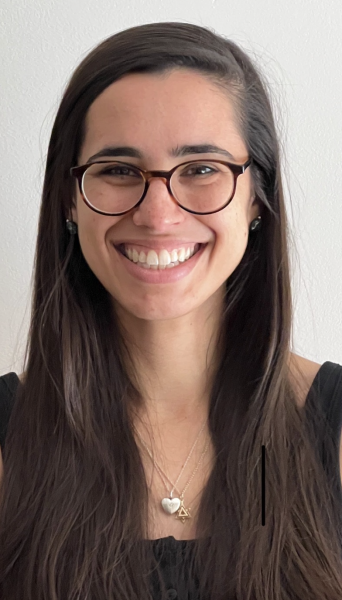American Psychological Association Division 50

Where do you work and in what capacity?
Currently, I am a clinical psychology fellow (intern) in Behavioral Medicine at Massachusetts General Hospital/Harvard Medical School. I provide clinical services through the Adult Outpatient Psychiatry Services and conduct research with Dr. Elyse Park and colleagues through the Health Promotion and Resiliency Intervention Research Program.
Where did you do your training?
I am completing my PhD in Clinical Psychology at Rutgers, The State University of New Jersey under the mentorship of Dr. Marc Steinberg. Prior to beginning my graduate training, I received a Bachelor of Science in Psychology from the University of Massachusetts Amherst and subsequently worked as a clinical research coordinator at the University of Massachusetts Medical School, coordinating NIAAA-funded studies under the mentorship of Dr. Elizabeth Epstein.
What are your research interests?
My long-term goal is to conduct clinical research at the intersection of addictive behaviors and behavioral health, with the goal of improving the quality and accessibility of treatment to reduce suffering and improve quality of life. To date, my primary contributions to science have been advancing the field’s understanding of e-cigarette cessation, specifically among individuals who may be interested in quitting e-cigarettes and examining modifiable targets for intervention in the treatment of substance use disorders. Prior to and during my graduate training, much of my research involvement has been in the context of clinical trials aimed at adapting and testing CBT and MI-based interventions for tobacco and alcohol use disorders. In my own work, my dissertation study, funded by a NIDA-funded National Research Service Award Individual Fellowship (F31) and a pilot grant through the Penn/Rutgers Tobacco Center for Regulatory Science funded by FDA/NCI, examines dynamic patterns of e-cigarette use among adults planning to quit e-cigarettes, using ecological momentary assessment. This pilot study will serve to inform future smartphone-based treatment development efforts. A newer direction of my work integrates my interests in treatment of alcohol and tobacco co-use in the context of cancer care.
What are your clinical interests?
My clinical work has primarily been centered around working with adults with substance use disorders (including tobacco use disorder) and folks with co-occurring psychiatric and physical health concerns. While I use Cognitive Behavioral Therapy (CBT) as my primary theoretical model for case conceptualization, my treatment approach integrates CBT, Motivational Interviewing and third wave behavioral therapies, such as mindfulness-based treatment, Acceptance and Commitment Therapy, and Dialectical Behavioral Therapy.
How did you become interested in addictive behaviors? What are your policy/advocacy interests?
During an internship in college, I provided a problem-solving intervention to an inmate at the local county jail. On my first day, I was escorted by a Correctional Officer through the sally port and toward the cafeteria, the location of my first session with my assigned inmate. The inmate assigned to meet with me sat down across from me at the table and began to talk about his substance use history, difficult childhood experiences, and past incarcerations. It was in this space that I became especially curious about addiction and mental health and angered and confused by the systems that maintained poor mental health treatment and restricted access to care. It struck me that I, an undergraduate volunteer, was providing skills training to this person in jail following his third DUI and incarceration and that earlier treatment, or better treatment, or any treatment could have contributed to different outcomes for him. Since this early experience, I have spent many years curating opportunities and experiences to gain more awareness of these challenges and the ways in which I might use my training to improve the quality and accessibility of treatment for substance use disorders.
What motivated you to join the Society on Addiction Psychology (Division 50)?
I first began to take advantage of opportunities through SoAP as a post-bac research coordinator. My very first encounter with SoAP involved attending a Student and Early Career Psychologists Live Podcast led by Katie Witkiewitz which provided insights and suggestions for navigating the graduate school application process and additional milestones I would encounter over the course of my graduate career. At each encounter with SoAP, it is apparent how much the division and its senior members value the involvement of folks at any career stage and prioritize opportunities for professional development and networking for trainees. While I have yet to attend a conference in person (thanks to covid!), I look forward to continued involvement in the division throughout my career!
Any other information that you would like to share about yourself with other SoAP members?
When I’m not working, I enjoy spending time with family, friends, and my sweet dog, Chandler, cooking, and crafting. I’m currently knitting my second sweater and hope it’s completed before next fall

Resources are available for those struggling with addiction and numerous effective treatments exist. Whether you are looking for help for yourself or a loved one, we encourage you to seek out help.